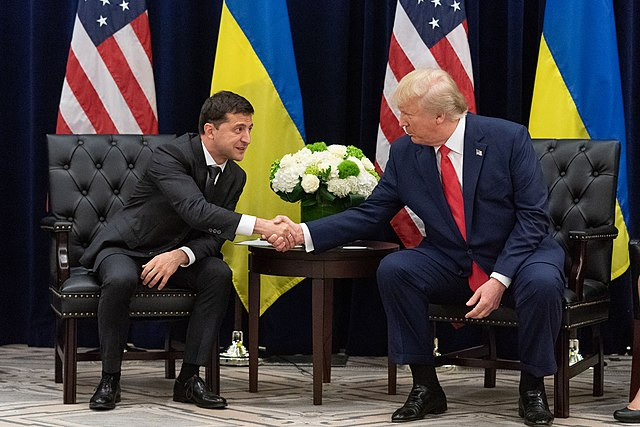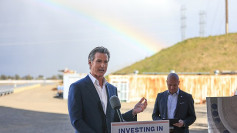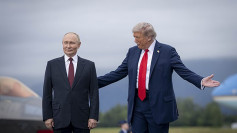President Donald Trump sharply criticized Ukrainian President Volodymyr Zelensky on Wednesday over his refusal to recognize Russia's control of Crimea, escalating tensions around a U.S.-led peace proposal that would formalize some Russian territorial gains in exchange for a ceasefire. The former president's comments, made on Truth Social, came just hours after a major Ukraine peace summit in London was downgraded due to the sudden withdrawal of Secretary of State Marco Rubio.
"It's inflammatory statements like Zelenskyy's that makes it so difficult to settle this War," Trump wrote. "He has nothing to boast about! The situation for Ukraine is dire - He can have Peace or, he can fight for another three years before losing the whole Country."
The backlash followed Zelensky's statement on Tuesday, in which he declared, "Ukraine will not legally recognize the occupation of Crimea. There is nothing to talk about. It is against our constitution." Trump responded: "Crimea was lost years ago... It is not even a point of discussion," accusing Ukraine of having failed to defend the peninsula when it was annexed in 2014.
At the heart of the controversy is a peace framework backed by the U.S., which would recognize Russia's control of Crimea and solidify the current front lines of the war. Vice President JD Vance said Wednesday the plan represents a final U.S. offer: "We've issued a very explicit proposal... and it's time for them to either say yes or for the United States to walk away from this process."
Vance added that the proposed agreement would "freeze the territorial lines at some level close to where they are today," and that "the Ukrainians and the Russians are both going to have to give up some of the territory they currently own."
While Kyiv has signaled openness to a ceasefire and future negotiations, the formal recognition of Russia's sovereignty over Crimea remains a red line. Zelensky renewed calls for an "immediate, full and unconditional ceasefire" and insisted that "stopping the killings is the number one task."
The London summit, initially expected to yield diplomatic progress, was reduced to technical talks after Rubio pulled out. State Department spokesperson Tammy Bruce cited "logistical issues," though U.S. and European officials acknowledged the administration felt the talks were not yet at a decisive stage. Trump's envoy Keith Kellogg attended in Rubio's place.
Meanwhile, Trump's special envoy Steve Witkoff is expected to meet with Russian President Vladimir Putin on Friday in Moscow to further discuss the plan. Kremlin spokesman Dmitry Peskov confirmed Russia was open to discussions but emphasized "many nuances" remained unresolved, especially around the presence of European peacekeepers, which Moscow opposes.
The peace framework under discussion would also bar Ukraine from NATO membership through a U.S. veto, replacing it with a security guarantee from a proposed coalition led by the U.K. and France. That element remains unaccepted by Russia, which has long rejected any Western military presence near its borders.
The renewed push for a deal comes amid rising battlefield casualties. On Wednesday, nine Ukrainians were killed and over 30 injured when a Russian drone struck a bus near Marhanets. Ukrainian officials reported 134 drones were launched by Russia overnight.
The proposal, according to analysts, could represent a seismic shift in post-World War II diplomatic norms. This would be a "de jure recognition of territory taken by force," said Matthew Savill, director of military sciences at the Royal United Services Institute. It would “actively endorse the Russian position in opposition to the European position and Ukrainian politics."






